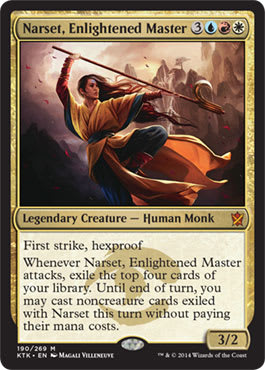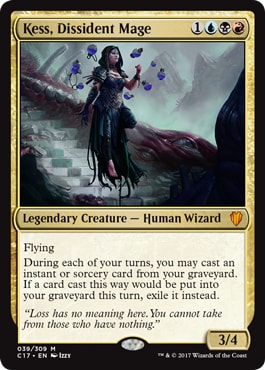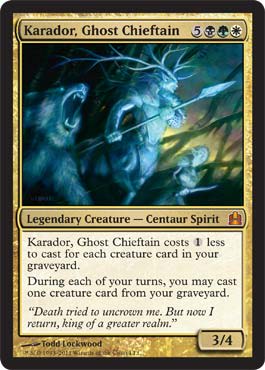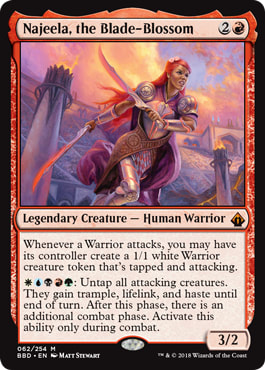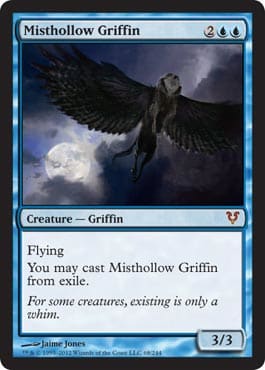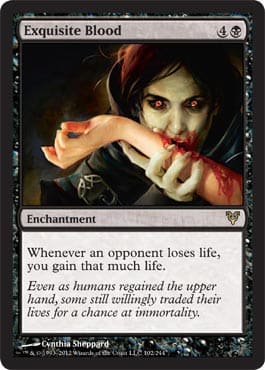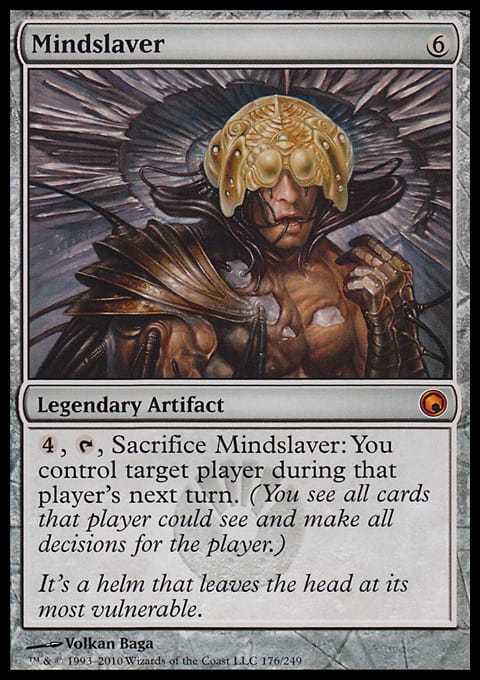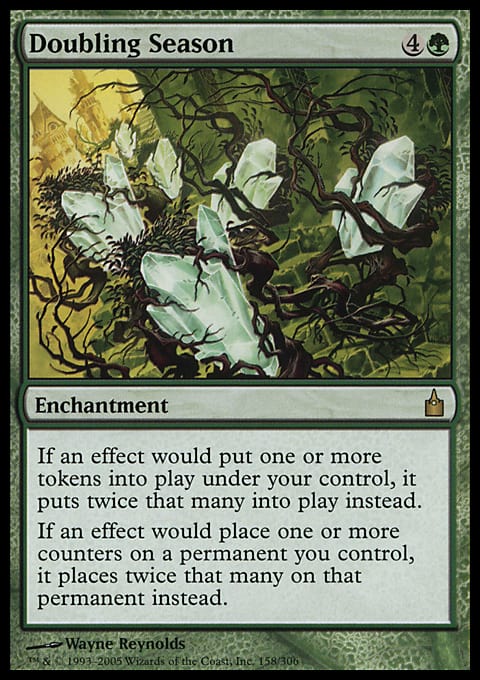
Storm on the Black Sea by Ivan Aivazovsky (1899). Naiad of Hidden Coves by Kieran Yanner.
We all know about rule zero.
You are supposed to have a conversation at the beginning of a game of Commander about power levels. In theory we all want to be playing games where the outcome isn't a foregone conclusion. You want a game where there will be some degree of back and forth. You want a struggle, not a pubstomp.
So how much are you entitled to ask about an opponent's deck before you start and how much information should you offer up to them?
I don't think it's fair to require your opponents to lay bare all of their plans before you go into the game. They have every right to want to have some tricks up their proverbial sleeves and you also have the right to hold back key information. It's good form to be honest. If you're asked if you are running a deck that primarily tries to win by combo, you should tell the truth. If you have a combo or two but that's not your main line of play, it's OK to say that you're playing a deck that has combos in it but that you're not an all-in combo deck. You might still wind up winning with a combo.
Today's topic isn't about splitting hairs on what is or isn't a combo deck, or a "fair" deck, or even a "cEDH" deck. If you play enough Commander you'll eventually wind up playing against all kinds of decks. Simplistic categories often fail to really encompass everything there is to say about a good Commander deck.
My assumption is that unless I'm playing against people I know well, using decks that I'm familiar with, I could at any point get blindsided by someone who is willing to win the game out of nowhere with a combo.
I can sometimes spot these things coming, and I can sometimes even stop them. I've played a lot of Commander and consider myself a fairly experienced player. I can usually tell when someone has brought a shotgun, a machine gun or even a bazooka to a knife fight, and I can usually tell when they started with a knife and are preparing to drop their blade and pull out a howitzer.
Today's column is more for newer players and is about an essential question - how do you tell if someone is "up to no good"?
You're probably not going to have a table mate look ominously at their library, tap it three times, say "I solemnly swear that I am up to no good", and then mutter "combo piece, combo piece, combo piece" at the start of each turn as they draw their first card.
I mean - that would be awesome, but it's unlikely to happen.
If you are playing a "fair" deck or even if you're an old hand at playing powerful cards in Commander, there are things to look for that should be seen as signs a player could be preparing to win out of nowhere. I'm not going to go into every combo in our format today but I'll try to share some things to look for and how I'd suggest handling them.
You will still lose games even with your guard (and mana) up and interaction in hand. There's no getting around it - combo wins games. My goal is to help you get a little better at telling when a tablemate is truly up to no good and about to try to get away with something.
Well, You're Playing Commander
This might seem like low-hanging fruit, but it's worth noting that in nearly every game of Commander, MOST of us are usually trying to be up to no good.
We all want some sort of advantage and whether an advantage or a "play" is fair or unfair is completely in the eye of the beholder. I'd argue that everything is fair so long as you're not breaking the rules, but I also appreciate that a lot of playgroups have a sense of lines that shouldn't be crossed. We are drawn to this format in part because of the powerful and amazing things we can do.
If we're ALL "up to no good" or at least hoping to get our board state to a point where we can start doing horrible things to our opponents, it's worth noting that most of us don't want to APPEAR to be up to no good.
We want our alpha strike to succeed or our combo piece to stick. We might appreciate an opponent who plays at a high level and saves the table from certain death but we rarely want them to stop us from doing what we want to do.
We're hoping to do something powerful with our deck and we're probably all trying to win.
That doesn't mean we shouldn't stop folks from winning with cheesy, lazy, tired and overly efficient game-winning combos. We should make them work for their victories, whether that means forcing them to beat us to death on the battlefield or forcing them to run through a half dozen counter and recursion spells before they eventually get their game-ending combo to stick.
In the Zone
Sometimes the hint that someone's about to do horrible things to a Commander table is right out in the open, sitting in the Command Zone.
There are dozens of legendary creatures that, when built around properly, are extremely powerful and lend themselves to combo. This is where your "rule zero" conversation is more important than ever. If you're playing against a top tier commander or a commander who was once considered top tier, you deserve to get a straight answer about how powerful the deck you're playing against really is.
A full list of powerful commanders would probably be impossible to complete and would be expanding every year. You can familiarize yourself with the top decks in the format if you care enough to be aware of when you're about to get crushed by a new player. You can go here for a list, but just because a commander is considered high tier doesn't mean a player's deck is built that way.
I'd suggest you ask whether or not an opponent has added key pieces that take a known and powerful commander and really take advantage of what that card can do. Sometimes it's just nice to know how screwed you are in a matchup, and any decent player will fess up to whether or not their deck going to try to do really powerful things.
Here are a few examples.
Narset, Enlightened Master: Do you run lots of extra turns and combat steps?
Kess, Dissident Mage: Do you run Demonic Consultation?
Karador, Ghost Chieftain: Do you run the Reveillark / Karmic Guide combo?
These are just three out of dozens of examples I could have given and I'm probably not even asking the best questions you might ask to see if you're truly playing against a highly tuned version of each of these decks.
Nearly every powerful commander has a key card or two (or three, or four) that work to make them hard to deal with. Animar, Soul of Elements, Ghave, Guru of Spores, and Marath, Will of the Wild all have key combo pieces that enable them to make very explosive plays. Ezuri, Claw of Progress wants Sage of Hours so they can take infinite turns. Both Heliod, Sun-Crowned and Mikaeus, the Unhallowed want Walking Ballista or Triskelion on the field so they can win. You get the idea.
There are folks who will say that anyone building a deck around a powerful legendary creature with combo potential should always put the combo into the deck.
Those people are dead wrong.
You should build your deck the way you want and make no apologies or excuses for having a tuned build or having a jank build. I've had plenty of fun games with folks who have built value-based, non-combo, suboptimal decks around commanders who are very high tier when built optimally.
If the player says "yes" when you ask if they run the known combo for a particular commander, there's every reason to believe that they are trying to play a high powered version of the deck that can win the game out of nowhere or do something that in casual circles is seen as "unfair". Is it possible to build an overpowered deck around a powerful commander without including familiar combo pieces? Of course it is. In general though, if you're going to build an optimized deck you're going to be playing well-known strategies and combos.
If the deck owner insists that they aren't doing the powerful thing that everyone else with that deck is doing - believe them.
They probably already get a ton of hate from playing a powerful commander. If it turns out they're lying to you and they combo off, the shame is on them for being a dirtbag pub stomper. If you're playing against a suboptimal deck with a great commander at the helm you should still keep your mana up and your interaction ready. That's just a good habit and you should do that whether you're playing against dirtbags like me or you're playing with little kids or brand new players.
Whatever you do - don't be that guy who kills them first and then looks through their penny common Goblin Warrior Najeela, the Blade-Blossom deck to find out they don't actually run Bear Umbra and Sword of Feast and Famine.
Trust them if they say they're not playing an optimized deck. Ask them if they run the known combo pieces and trust them if they say no. Then keep your guard up and play well because they're still trying to win and are probably still hoping to do horrible things to to you.
Words Matter
Here's where things get interesting. We all want to win. We generally don't want to lie to our tablemates. Most of us don't want to pubstomp but also don't want to get pubstomped. What all that means is that the way we describe our deck matters a lot.
I've got a Najeela, the Blade-Blossom deck. The current top-tier cEDH Najeela deck is a combo deck that runs very few creatures. It wants to get to a point where Najeela can attack and loop into infinite combat steps, but it uses combo pieces to make that happen and a ton of tutors and interaction to protect that wincon and to make it happen reliably on or before turn five.
My Najeela build is a Goblin Warriors deck.
Why did I build a Goblin Warriors Najeela deck rather than going for the cEDH build?
I like Goblins and leaning my deck toward that tribe allowed me to shift the mana base heavily toward red to help ensure that I'd be able to cast my commander on time and be more likely to have the right colors to play out early creatures. My concerns when I play my deck are very different from the concerns of a cEDH Najeela deck and I'm highly unlikely to threaten a win on or before turn five.
So how might a pre-game conversation go if I trotted out my Najeela deck?
Unsuspecting table mate: "Steve - are you playing the cEDH build of Najeela?"
Me: "Nope"
I'm not lying by saying no but if my deck plays out well or my tablemates don't actually know how the cEDH Najeela deck runs, they might think I'm lying. My deck can be very explosive. It is Najeela, the Blade-Blossom and I am running more than just goblins and warriors.
What if my opponent asked a different question?
Unsuspecting table mate: "Steve - are you running combo pieces in your Najeela deck?"
Me: "It's not a true cEDH build but I do have token doublers along with stuff like Bear Umbra and Sword of Feast and Famine. It's a Goblin Warrior build that leans toward Red so I'm more likely to have the colors to be able to play my commander. It can be explosive but it's unlikely to win really early."
Asking the right questions will more likely get you to the right answers.
I like to talk and I'm not really a dirtbag, so I'd probably offer up all of this information without anyone even having to ask. I'm chatty and I hate for someone to genuinely feel like they got blindsided or lied to. That's not a good feeling and that's not the kind of game I want to play.
Lots of people aren't as talkative as me and won't offer up information about their deck unless they're really pressed. If you care enough you should definitely ask more about your opponents' decks than what power level they are at.
Just because a player isn't playing an optimized top tier deck doesn't mean they aren't "up to no good". We're probably all up to no good, and by asking a lot of questions before the game you can better prepare for the eventuality that someone might be trying to fly under the radar.
I'll sometimes want to fly under the radar with a deck that has some strong lines of play, but at other times I'll be up front about what I'm doing and will even point to key permanents on my field and let my friends know that they should remove them. I suspect I'm not alone - we all have different moods and in the right mood many of us can enjoy an unbalanced game where we probably were a bit too powerful for the table we were sitting at. In other moods we'll invite our opponents to make the right plays and point out how to stop us.
Bad Signs
If you can't tell if a player is going to do truly horrible things to you by looking at their commander and you don't ask the right questions before the game, there are still things to look out for while you're playing. There are lots of cards that are signs an opponent is going to try to win the game in a way that might be extremely powerful and difficult to stop.
If you ever see any of the three creatures shown above, odds are overwhelmingly good that your opponent is playing a deck with Food Chain in it. Assuming they're in Green, they want to play Food Chain and use one of these guys to create infinite mana. With that infinite mana they'll probably find some way to win the game.
There are a lot of cards that are very dangerous because they are half of a 2-card combo. The aforementioned Heliod, Sun-Crowned and Mikaeus, the Unhallowed can pair up with Walking Ballista or Triskelion to kill the table, but there are dozens of other cards you'll want to learn to watch out for.
If a player has Exquisite Blood and Sanguine Bond on the field, the two work together with just a little push to kill the table pretty nicely. Exquisite Blood is the one to watch out for because it's harder to find and is more expensive, but if you see Sanguine Bond on the field you can always ask if they run the combo. You might stumble across a player running Sanguine Bond on its own but you're unlikely to find a deck with Exquisite Blood in it that doesn't have this combo as a potential wincon.
Aura Thief is an example of a card to watch out for. An opponent can play it on its own for value but if they are also in White - watch out for Enchanted Evening. When Aura Thief dies, its controller gains control of all enchantments on the field. Enchanted evening turns all permanents into enchantments - including lands. Mindslaver is another card that is often run for value, but some decks run a "Mindslaver Lock" that will allow them to bring Mindslaver and activate it every turn.
Doubling Season, along with Parallel Lives, Anointed Procession, Primal Vigor and even Hardened Scales, are all cards that can be used to combo off with certain commanders. They provide a lot of value, but with the right cards in the command zone they are very dangerous to let stick around. A "superfriends" deck built around planeswalkers is especially dangerous with Doubling Season, as they will likely have included planeswalkers that can hit the battlefield with twice their normal loyalty counters and then use their most powerful ability immediately.
If you see a sacrifice outlet like Ashnod's Altar on the field, there's a reasonably good chance that there's a combo lurking in that player's library (or hand) that will win them the game. An enchantment like Impact Tremors, Purphoros, God of the Forge or any other enter-the-battlefield (or leave-the-battlefield) damage trigger can be played for its incremental value, but is a key part of a lot of very powerful combos and strategies.
If you see these or other dangerous cards on the field, should you remove them immediately?
I think the best answer is that it depends.
Even if your opponent insists that they aren't playing combo, it doesn't take too many Krenko activations with an army of Goblins to kill a table with Impact Tremors damage. Technically, that's just synergy unless they've got a way to set up a loop and activate Krenko repeatedly. If you have instant-speed removal (which you should) you can often wait until the last minute.
If you have only have sorcery-speed removal, you're better off removing the threat preemptively. You might guess wrong about which opponent was the one most likely to kill the table out of nowhere, but at least you'll have tried.
On The Outside Looking In
Of course, not all game-winning combos are quite as obvious as the ones I've shared with you. Sometimes the combo isn't going to present itself as a permanent until it's too late. Sometimes a combo doesn't involve permanents at all.
If your opponent has a keen interest in making sure you cannot cast spells on their turn, they're probably up to no good. This kind of effect is convenient even if you're not trying to win the game out of nowhere, but locking your opponents out of your turn is especially important for decks that want to do just that.
Clever players will keep their wincons in hand and only go for it when they've got one of these cards on the field. You can certainly make an argument that these are just strong cards and don't necessarily mean your opponent is trying to combo off. I have run Dragonlord Dromoka in Dragon tribal decks and I've thrown Conqueror's Flail into my The First Sliver deck even though it's just a non-combo Sliver tribal list. I've also played against and built decks where the appearance of one of these lock pieces is the sign that the game is probably over because the wincon is about to hit the table.
For some players these lockout pieces are just a sign that they really, really hate having their spells countered and having their generally fair plans messed with. For other players these kinds of cards are signs that the end is near.
The Lady Doth Protest Too Much
Don't be surprised if your opponent pleads their case. They might even plead their case convincingly.
If your opponent tells you that if you leave their Impact Tremors alone they won't attack you for the rest of the game, that's a big hint. It's likely they were never planning to attack you in the first place. Looping a creature infinitely with Impact Tremors on the field will kill the table very nicely without ever having to go to combat.
Should you let an opponent talk you out of doing something you want to do?
That really depends upon how well you are able to "read" them. They might be engaging in misdirection. They might be about to win and don't want you to mess up their plans. They might just be a particularly whiny and unpleasant player.
I generally try to lean on the side of doing the opposite of what they want you to do.
Most opponents won't bother to feign offense at something they don't care about. If you're going to swing at their planeswalker and they're pleading with you to just hit them instead, you should probably hit the planeswalker unless they can convincingly explain to you why it's really in your interest to let it live. They might have the win in hand if that planeswalker stays around. They might have a Deepglow Skate in hand. Whatever they tell you, there's a good chance it's only half of the truth and the right play is to go through with what you were going to do in the first place.
Is it a sign that a player is "up to no good" if, to quote Shakespeare, "the lady doth protest too much"?
I think it depends upon the person, but the answer is a hard "probably".
Sometimes you'll have someone who has just had a terrible game or a terrible night of games and all they want is to do one thing before they eventually get overrun. I've been there and I've plead my case. Sometimes it's innocent, but sometimes it's a sign that the person making a minor spectacle of themselves is indeed up to no good and you should go through with whatever you were planning to do to them.
Final Thoughts
I started this week's column wanting to help out casual players who seem to often get blindsided but at this point I feel like I've danced around the basic issue that you're going to get surprised by combos and out-of-nowhere wins until you've played enough Commander that... well, that you simply aren't. Eventually you'll have seen enough 2, 3 and more card combos that you'll learn to see them coming, and you'll know that sometimes they really do come out of nowhere.
There are ways to see them coming, and learning what to look out for can help but there's no substitute for experience. I know how aggravating it is to get pubstomped and I know how long it takes to get used to the fact that some games are just going to have really unsatisfying ends - at least for you and everyone else who didn't win and didn't have an answer ready.
Before I sign off I should just say for the record that my talk of combo players being "up to no good" is somewhat tongue-in-cheek.
I enjoy combo, but I also appreciate the disdain that casual players often have for what feel like cheesy, overly powerful wincons. I eventually (mostly) got over my negative reactions to those out-of-nowhere losses and even learned to do them myself sometimes when I'm at the right table or in the right mood. If you're not there yet - you'll probably get there. It's a part of the format and unless you house-rule them out of your games, you'll probably have to suffer through them every now and then. With a little practice you'll learn to see them coming, spot the signs of an opponent who is "up to no good" and might even hold up mana and have the means to stop them.
That's all I've got for now. I feel like this week's column has been more of a ramble than usual, but I hope there was something in here for you.
Thanks for reading and I'll see you next week!













